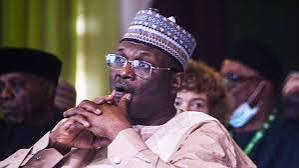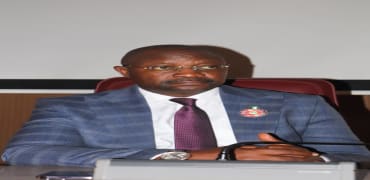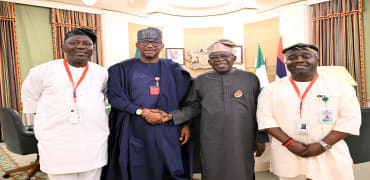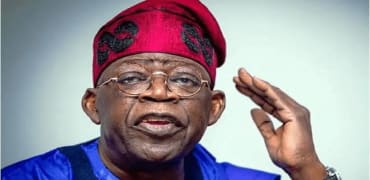2027: Opposition Parties Clash with INEC over Voter Registration Figures
2027: Opposition Parties Clash with INEC over Voter Registration Figures
Abuja — Fresh tension is brewing between the Independent National Electoral Commission (INEC) and major opposition political parties over what they describe as “statistically implausible” figures from the ongoing nationwide voter pre-registration exercise.
The controversy, which has already drawn in the Peoples Democratic Party (PDP), Labour Party (LP), African Democratic Congress (ADC), and former Vice President Atiku Abubakar, centers on an unusual surge of registrations recorded in the South-West, with Osun State emerging as the epicenter of the dispute.
INEC, however, has dismissed the allegations, insisting that nothing unusual has happened and warning critics against hasty conclusions.
INEC Defends Numbers
Reacting to the growing uproar, Chief Press Secretary to the INEC Chairman, Mr. Rotimi Oyekanmi, described the claims as “baseless and misleading.”
“There is nothing extraordinary about the online pre-registration data released by the Commission. Nothing can be further from the truth,” Oyekanmi said in a statement.
He explained that the current Continuous Voter Registration (CVR) exercise began on August 18, 2025, with online pre-registration, followed by in-person registration a week later. According to INEC, Osun State topped the figures with 393,269 registrants in just one week, while Lagos followed with 222,205, and the Federal Capital Territory came third with 107,682.
Oyekanmi argued that this trend was not new, citing similar surges during the 2021–2022 CVR exercise, when Osun consistently led in new registrations until the process closed with over 708,000 new voters added.
“Our responsibility is clear,” he stressed. “Only real persons who meet constitutional criteria will be allowed to register. Nigerians should be cautious about misinformation when verifiable data is publicly available.”
Opposition Raises Alarm
The African Democratic Congress (ADC) was the first to cry foul, warning that the credibility of the 2027 elections could be fatally undermined if INEC does not conduct a forensic audit of the registration data.
Mallam Bolaji Abdullahi, the party’s spokesperson, said Osun’s figures “defy logic” when placed side by side with past voter turnout.
“Even at its highest point of mobilisation in 2022, Osun could not produce more than 823,124 votes in a governorship election. Now, within just one week, nearly 20% of the state’s eligible adults have registered. This is not just unusual; it is statistically implausible,” Abdullahi argued.
The ADC also pointed out that while the South-West accounted for nearly 67% of all new registrants nationwide, the entire South-East recorded less than 2,000.
“These fantastic figures raise the question: is this a technical glitch, or something far more troubling? Either way, INEC owes Nigerians clear answers,” he said.
Labour Party: “Rigging Before Election Day”
The Labour Party (LP) echoed these concerns, accusing INEC of playing into the hands of the ruling All Progressives Congress (APC).
LP’s interim National Publicity Secretary, Tony Akeni, warned of an “orchestrated attempt to rig the 2027 elections before Election Day,” stressing that anomalies in voter registration are red flags.
“We are worried that states perceived to be strongholds of the ruling APC are getting preferential treatment. Nigerians must be vigilant. We don’t want to see names like Michael Jackson or Mike Tyson reappearing in our voter register,” he quipped, alluding to past controversies.
PDP: “Weak Institutions, Manipulated Data”
The PDP took a broader view, linking the registration disparities to what it described as Nigeria’s chronic institutional weaknesses.
Deputy National Legal Adviser, Mr. Okechukwu Osuoha, told reporters that the figures point to manipulation.
“In one state, we are told that nearly 400,000 people registered in a week, while in several other states combined, we barely have 4,500. This cannot be a coincidence,” he said.
Osuoha added that Nigeria’s history of inflated census figures and election results makes the situation even more worrying.
Atiku: “Urgent Probe Needed”
Former Vice President Atiku Abubakar weighed in, demanding an urgent investigation into what he described as “contrived voter figures.”
Through his media aide, Paul Ibe, Atiku stressed that leaving the issue unresolved could erode confidence in Nigeria’s electoral process.
“There must be an investigation. Nigerians deserve to know that the figures published by INEC are genuine, not manipulated. Swift action is vital because the credibility of the 2027 elections depends on it,” he said.
In a related statement, Atiku also renewed his call for urgent amendments to the 2022 Electoral Act, pressing for the mandatory use of BVAS and electronic transmission of results, and a total end to manual collation.
Forensic Experts Offer Support
In the midst of the dispute, the Chartered Institute of Forensics and Certified Fraud Investigators of Nigeria has pledged to assist INEC in verifying the figures.
Its president, Dr. Iliyasu Gashinbaki, said:
“Our role is not political. We are ready to deploy forensic tools and technology to ensure transparency. INEC must be supported to get this right.”
What Next?
As opposition parties continue to mount pressure, and INEC insists on the integrity of its figures, the silence of the ruling APC has only fueled speculation about possible political undercurrents.
With barely two years to the next general election, the controversy over Osun’s voter registration figures may become a litmus test for INEC’s credibility — and for Nigeria’s fragile democracy.
By Haruna Yakubu Haruna

















